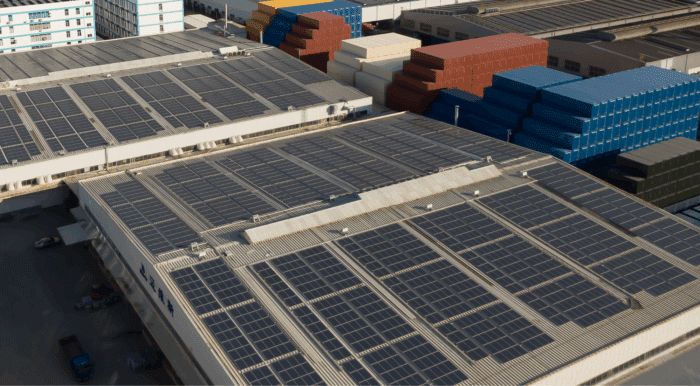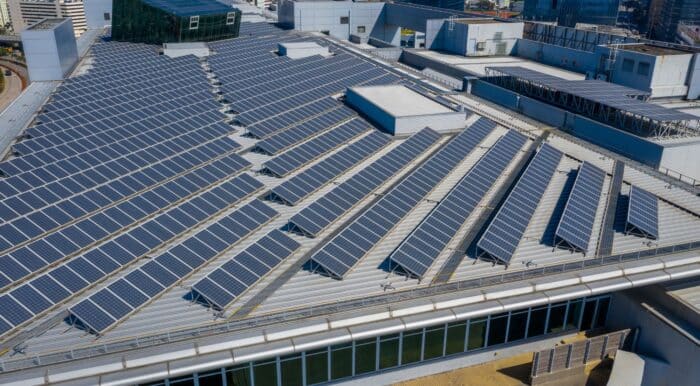→ Understand the policies, the pressures, and why now is the time to act.
In recent years, “net zero” has gone from a buzzword to a legally binding commitment, and UK businesses are at the heart of the plan.
The government’s 2050 Net Zero target isn’t just a political ambition. It’s shaping policies, regulations, and public expectations across every sector. Whether you’re in construction, manufacturing, retail, or logistics, the pressure to decarbonise is only going one way: up.
So what exactly is net zero? What changes are coming? And what does it mean for your business?
Let’s break it down.

What Is Net Zero And Why Does It Matter?
Net zero means reducing greenhouse gas emissions to as close to zero as possible, with any remaining emissions offset by actions like tree planting or carbon capture.
The UK was the first major economy to make net zero a legal obligation. The target?
➡️ Reach net zero emissions by 2050.
But this isn’t something that kicks in decades from now. Businesses are already being asked to act, with incentives, new requirements, and growing scrutiny.
What Are the UK Government’s Net Zero Policies?
The government’s Net Zero Strategy, launched in 2021 and updated through 2023–2025, sets out a roadmap for reaching its goals.
Key pillars include:
- Clean electricity by 2035
- Phasing out petrol and diesel vehicles by 2030
- Energy efficiency upgrades for commercial buildings
- Sustainable supply chains
- Carbon reporting for large businesses
Relevant Legislation & Regulations:
🧾 1. Streamlined Energy and Carbon Reporting (SECR)
- Mandatory for large UK companies (including LLPs)
- Requires businesses to report on energy use and emissions
- Aims to encourage reductions and transparency
💷 2. Energy Savings Opportunity Scheme (ESOS)
- Applies to large businesses (>250 employees or turnover >£44m)
- Requires regular energy audits and recommendations
- Phase 3 compliance deadline: June 2024
🏢 3. Minimum Energy Efficiency Standards (MEES)
- Commercial properties must meet EPC rating of E or higher to be rented
- Target to raise this to B rating by 2030
- Affects landlords and tenants alike — retrofits are now a priority
🚗 4. EV Infrastructure & Transport Decarbonisation
- Sale of new petrol/diesel vehicles banned from 2035
- Workplace charging is being encouraged through grants and planning policy
- Fleets must begin transitioning now to meet future expectations
Why Businesses Should Take Action Now
You might think “2050 is a long way off”, but the real deadlines are already arriving.
Here’s why smart businesses are acting now:
⏳ 1. Regulations Are Tightening
If you’re not compliant with SECR, ESOS or MEES, fines and reputational damage are on the table. These regulations will only expand to include smaller businesses over time.
💡 2. Energy Prices Are Rising
By reducing reliance on the grid, with solutions like solar, battery storage and efficient heating, you’re protecting your business from volatile energy markets.
🌱 3. Customers Are Watching
Whether B2B or B2C, your clients care about sustainability. Many now demand environmental transparency in procurement processes. Carbon reduction = competitive edge.
🧑💻 4. Staff Want Greener Workplaces
Employees, especially younger generations, value sustainable employers. You’re more likely to attract and retain top talent by demonstrating your green credentials.
📈 5. Funding & Grants Are Still Available
From workplace EV charge point schemes to solar installation incentives and low-carbon retrofit grants, the UK still offers support, but it won’t last forever.

What Can Businesses Do To Align With Net Zero?
You don’t have to overhaul everything overnight. But you do need a clear plan.
Here’s where to start:
1. Conduct an Energy Audit
Find out where your emissions and inefficiencies lie. This is often required under ESOS, but useful for every business.
2. Switch to Renewable Energy
Install solar panels on your premises and invest in battery storage to reduce grid reliance and costs.
3. Improve Energy Efficiency
Upgrade lighting, insulation, heating systems and controls. Replace outdated equipment with energy-efficient alternatives.
4. Invest in Smart Tech
Install smart meters and monitoring platforms to understand usage patterns and optimise operations.
5. Support Low-Carbon Transport
Add EV charging points for your team and start converting your fleet to electric. There are tax benefits and grants available.

Net Zero Is a Business Opportunity, Not Just a Burden
While net zero compliance might sound like another red-tape headache, the reality is this:
The businesses that adapt now will be the ones that thrive.
They’ll pay less for energy.
They’ll attract better clients and talent.
They’ll be more competitive and resilient.
And they’ll stay ahead of regulations, not scramble to catch up.
✅ Novus Energy Can Help You Get Ahead
We work with UK businesses to:
- Design and install solar and battery systems
- Support with ESOS and SECR reporting
- Deliver EV charging solutions
- Build bespoke net zero roadmaps
📞 Ready to future-proof your business?
Call us on 01422 768113
📧 Or enquire using the contact form below.
Let’s turn net zero into your competitive advantage.